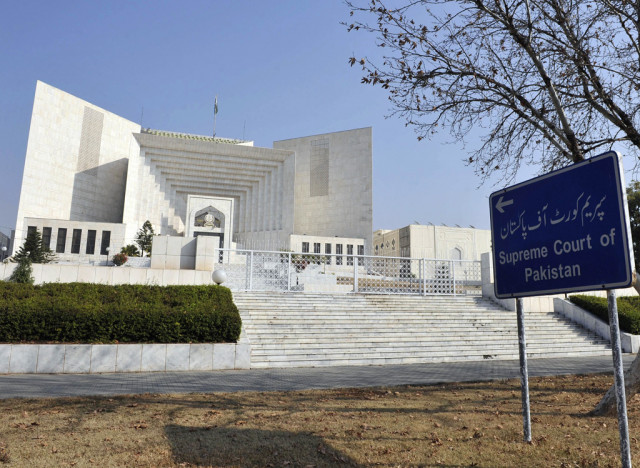Unconstitutional: SCBA challenges Supreme Court’s rules
Apex court’s rules which stop a litigant from replacing his counsel in a review case challenged by SCBA

Supreme Court Bar Association (SCBA) has challenged the apex court’s rules which stop a litigant from replacing his counsel in a review case.
The SCBA president Kamran Murtaza filed the petition under Article 184(3) of the Constitution, challenging Order XXVI Rule 6 of the Supreme Court Rules, 1980. The SCBA on April 10, 2014 passed a unanimous resolution to file a petition in the apex court.

The SC’s senior-most judge – Justice Jawwad S Khawaja, while hearing the case on Thursday – admitted that there is need to review the Supreme Court’s 34 year old rules and frame them in accordance with present circumstances. He also asked the SCBA president to move a plea seeking amendment in the apex court’s rules immediately.
Pakistan Bar Council (PBC) has already submitted a draft in the apex court, seeking to amend the court’s 34-year-old rules, which were framed during the military rule of General Ziaul Haq.
“The enforcement of Order XXVI Rule 6 of the Supreme Court Rules is a matter of public interest as it has impugned upon the rights of the legal profession, the litigants and created monopolies in the practice of law. It has indirectly blocked fair access to justice, which is against the Constitution,” the petition said.
The petition said all superior bars have remained concerned with the amendment introduced in Order XXVI rule 6. The amendment said: “Except with the special leave of the Court, no application for review shall be entertained unless it is drawn by the Advocate, who appeared at the hearing of the case in which the judgment or order, sought to be reviewed, was made.
“Nor shall any other Advocate, except such Advocate, be heard in support of the application for review, unless the Court has dispensed with the requirement aforesaid.”
The petition contended that the amendment had placed unreasonable restrictions on the practice of an advocate by denying freedom to appear as a counsel in review, forcing an advocate to appear in a review against his /her free will.
“[It also] denies access to complete justice to a litigant, forcing a litigant to engage particular counsel against the Constitution and denying a litigant freedom to choose a qualified counsel of his/her choice,” it said.
Published in The Express Tribune, October 25th, 2014.



















COMMENTS
Comments are moderated and generally will be posted if they are on-topic and not abusive.
For more information, please see our Comments FAQ